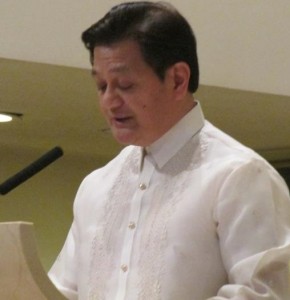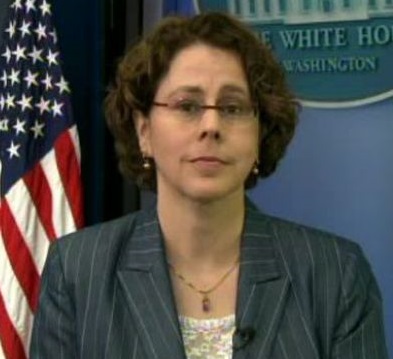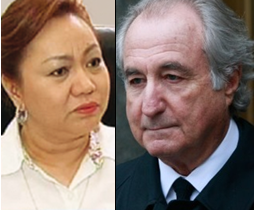FILAMSPEAK: Can Obama stop deportations? ‘Absolutely,’ say immigration lawyers
By Cristina DC Pastor
President Obama has said he can’t, but the immigration reform network believes he can but will not. Stop deportations, that is.
A Korean immigrant student raised the challenge to Obama during the president’s recent visit to San Francisco.
“I need your help,” yelled Ju Hong who was part of the audience behind Obama during his recent visit to the Bay Area. “My family will be separated on Thanksgiving. Please use your executive order. You have the power to stop deportation.”
Obama muttered he does not have that power. He has always maintained that any law to halt removal proceedings would require an act of Congress.
The FilAm sought the wisdom of four immigration lawyers who explained that Obama can, indeed, use his executive power to stop deportations. He has used the same power to enforce the Deferred Action for Childhood Arrivals (DACA) to grant legal status to qualified DREAM Act youth and also to overturn the Defense of Marriage Act paving the way for same-sex couples to wed.
Why the reluctance to wield the same power? Many reasons, but the lawyers we interviewed believe it could be a combination of factors, such as lack of political will or a case of political strategizing on the part of the president.
Meantime, deportations continue at “record levels,” according to the independent Pew Research Center. In 2011 some 392,000 immigrants were removed from the U.S., citing Homeland Security data. Many were deported for offenses, such as drug trafficking, driving under the influence and entering the country illegally. “The Obama Administration has deported more immigrants annually than the George W. Bush Administration,” said the Pew Research Center.

CRIS GODINEZ
Lawyer
Migrant Center at the St. Francis of Assisi Church
Yes, he can (allusion to his campaign promise intended). Pres. Obama has already done that to a limited extent when he implemented DACA, which is technically a form of prosecutorial discretion. Through the Department of Homeland Security’s Immigration and Customs Enforcement (ICE), Pres. Obama can stop deportations pursuant to prosecutorial discretion. ICE has the authority to decide how it enforces immigration laws. It claims to be enforcing immigration laws in “a targeted and humane manner,” but the reality is that more deportations were carried out yearly under Obama than under the Bush government.
Worse, there were more deportations of those arrested for less harmful offenses like traffic-related or immigration violations, than those who were involved in dangerous drug offenses. Perhaps the question really is, whether this government has the political will to exercise prosecutorial discretion to the fullest extent that fairness and justice demand?

RIO GUERRERO
Partner
Guerrero Yee LLP
Arguably, President Obama has the power to halt all deportations. During the past two years, his administration took bold action by creating DACA and electing not to enforce the Defense of Marriage Act. Both acts advanced the interests of immigrants while flying in the face of existing U.S. laws.
But as strange as it may seem, it would be counterproductive to halt all deportations. By halting all deportations the President would lose what little remaining political capital he has to spend on bringing about comprehensive — or even piecemeal — immigration reform.
The more important question is whether he should curtail deportations to preserve family unity or when certain other equities exist, while no national security is at risk, by instructing government trial attorneys and the other government actors to exercise greater prosecutorial discretion. This policy would result in fewer deportation cases brought and prosecuted. The answer to that question is clearly “yes.”

DENNIS ORTIGUERA
Lawyer
Lubiner & Schmidt, LLC
The short answer is yes. As head of the executive department of which USCIS and ICE are part of, he can issue directives on how the department can implement the law. This is much like how DACA works and the policy of prosecutorial discretion for non-criminal deportees.
It’s all political. But it’s really a short-term or stop-gap solution to bigger problem. Legalization will still need congressional action.
ARNEDO VALERA
Managing Attorney
Valera and Associates
Yes, absolutely. While waiting for the passage of a comprehensive immigration reform, it is within the power of the President to stop deportations of immigrants who have no criminal records and have not committed aggravated felonies. 
The President through the Department of Homeland Security which is under the Executive Branch must issue additional executive directives and memorandum similar to the existing Prosecutorial Memorandum (Morton Memorandum, June 17, 2011), which establishes criteria and categorizing priorities for deportation.
Right now, many immigrants being deported includes women, children, fathers who do not have criminal records and or aggravated criminal convictions. Pres. Obama has done that with DACA, an executive and short version of what is supposed to be the DREAM ACT (which requires legislation). But at least under DACA, children who studied here and are out of status can apply for work authorizations but with no pathway to permanent resident status and citizenship. Now we have federal detention facilities crowded because of immigration detention of individuals, majority are from Latin American countries even if they have no criminal records.










